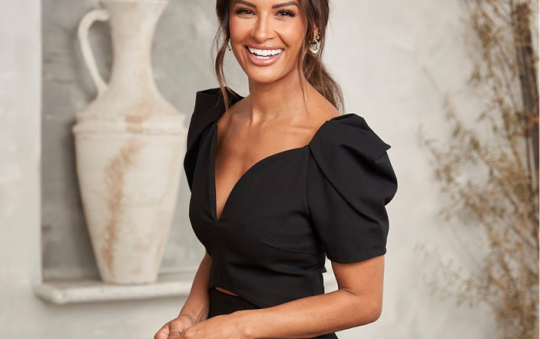
My journey from a public health investigator to an advocate for comprehensive sex education has been deeply personal. Guided by my experiences at the Black AIDS Institute and as a Certified Health Education Specialist, my mission has been to create inclusive and honest conversations about health within Black communities.
This Women’s History Month, I reflect on Dr. Joycelyn Elders’ legacy, a path that I strive to honor as we press forward in the fight for equitable health education, with a particular focus on Black girls.
Rising from the constraints of a segregated society to become the first Black female U.S. Surgeon General, Dr. Elders has been a formidable advocate for comprehensive sex education. Her tenure as Surgeon General was marked by outspoken advocacy, including her views on abortion, positioning her as a progressive voice in public health.
Dr. Elders said, “We must not let the conservative elements in our society prevent us from providing our children with the education they need to live healthy, productive lives.” She understood the importance of autonomy and empowering young people through comprehensive sexual health education to make informed decisions about their health.
Recent CDC findings indicate that 54.3% of sexually active high school students use condoms. Yet, a concerning gap exists among Black students, 23.2% of whom report not using any pregnancy prevention methods, a stark contrast to the 6.8% reported by their white peers. Moreover, the early onset of puberty in Black girls amplifies these challenges, making them more vulnerable to stereotyping, sexualization, and bullying. This gap underscores a significant need for targeted, culturally relevant sex education. Not only would it provide the essential knowledge all Black youth need about their bodies, sexual health, and safe practices, but it also arms them against higher rates of unintended pregnancies, STIs and HIV.
Dr. Elders’ vision for sex education extended beyond the classroom. She understood then, as we do now, that comprehensive education encompasses discussions on contraception, safer sexual practices, and the prevention of STIs and HIV. Her approach was holistic, advocating for programs that also address self-esteem, substance abuse prevention, and the social determinants of health that disproportionately impact Black communities.
To carry on Dr. Elders’ legacy, programs and educators must renew their commitment to advancing comprehensive sex education for all, with a particular focus on the needs and challenges faced by Black girls. Planned Parenthood Los Angeles’s Black Health Initiative (BHI) was created to address these health disparities in Black communities throughout Los Angeles.
In 2023, BHI provided over 3,000 teens, young adults, and parents with medically accurate and culturally relevant information on sexual and reproductive health. Additionally, BHI hosted housing, family law, and record expungement workshops through its Medical-Legal Partnership with the UCLA Center on Reproductive Health, Law and Policy, and Legal Aid Foundation of Los Angeles.
Dr. Elders believed “Education should be a partnership between parents, educators, and the community.” I know that encouraging open discussions about sexual health at home complements school-based education and ensures our young people receive a well-rounded understanding of their health. This Women’s History Month, let us honor Dr. Elders by working together to dismantle the barriers to sexual and reproductive health education.
Brittinae Phillips, Sr. Education Manager for Planned Parenthood Los Angeles’s Black Health Initiative, manages community outreach and education for parents, college students, and youth.
Want more Black news? Join the community today! Click here for the Weekly newspaper and E-paper.








